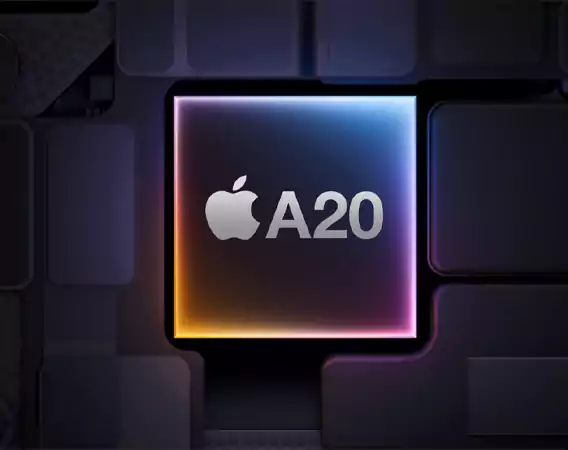
Apple is getting ready for a major improvement for its iPhone lineup with a new processor line set to debut in the iPhone 18 series. Industry sources reveal that the next-generation chips, reportedly called A20 and A20 Pro, will use a significantly different design and sophisticated packaging methods.
Said to be made on a 2-nanometer process node, the Apple A20 Chip family is a development from the 3nm wafers used for current premium phones. Apple hopes to profit from the increased circuitry per square millimetre and improved energy efficiency often afforded by smaller transistor design. Particularly, the Pro variation is thought to incorporate new transistor designs with wafer-level multi-chip module packaging to raise thermal headroom and cut latency among CPU, GPU, and memory blocks.
Engineers acquainted with the plans predict the chips will provide mild single-digit to low-double-digit increases in continued performance as well as a more noticeable decrease in energy use under regular loads. For consumers, that could mean faster picture processing, smoother gaming, and longer useful battery life between charges. Furthermore, freeing inside room for more hardware improvements could come from closer integration of logic and memory.

Apple intends to reserve the most sophisticated A20 Pro silicon for its high-end smartphones, leaving the base apple a20 chip for ordinary phones. Observers of the market believe Apple is chasing such a product, so the best chips will first show up in Pro-branded devices and maybe a premium foldable model. Although some roadmap leaks suggest iterative releases over the 2026–2027 time frame, the launch date is still questionable. Apple launched A19 Pro Chip, but with a GPU Downgrade in it for Iphone 17 air
Technically difficult but expensive is the switch to 2nm production. Likely fabrication partner TSMC has major capital and yield issues at the forefront; wafer costs at that node are projected to be high. That begs questions on whether Apple will pay the extra cost or transmit some of it to customers via increased gadget pricing.
Apple’s A20 chip lineup for 2026 looks stacked. ⚡️
— Apple Club (@applesclubs) October 25, 2025
•iPhone 18 → A20
•iPhone Air 2 → A20 Pro
•iPhone 18 Pro / Max → A20 Pro
•iPhone Fold → A20 Pro
Apple’s next-gen power move. 🔥
Which one are you most excited for? pic.twitter.com/bbUJlDDr9n
Rather than pursuing headline benchmark statistics only, experts note the Apple A20 Chip family shows Apple’s continuing emphasis on striking raw speed with energy efficiency.
